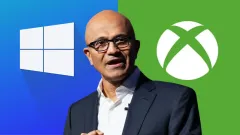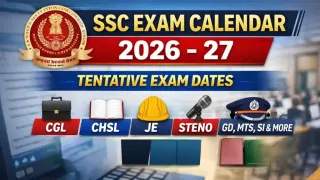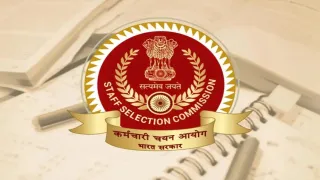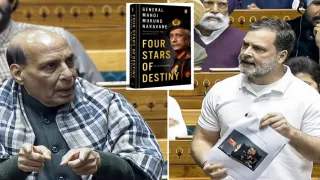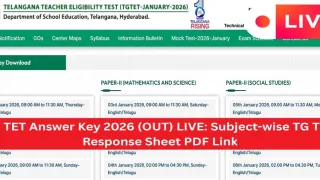In a significant diplomatic development, President Donald Trump announced on October 15, 2025, that Indian Prime Minister Narendra Modi has agreed to cease purchasing oil from Russia. This move aligns with the United States' broader strategy to exert economic pressure on Moscow to end the ongoing war in Ukraine. Trump emphasized that while the halt in oil purchases would not be immediate, it would occur "within a short period of time," describing it as "a big stop". The announcement has sent shockwaves across global energy markets, with analysts closely monitoring how quickly India will adjust its import strategy and what impact this will have on Russia's oil revenues.
The announcement follows heightened tensions between the U.S. and India, particularly after the Trump administration imposed a 50% tariff on Indian goods in August 2025. These tariffs were partly in response to India's continued imports of discounted Russian oil, which had surged to about 40% of India's oil imports since the war began. Despite these pressures, India maintained its position, arguing that its energy policy was independent and grounded in strategic autonomy. Many experts suggest that this announcement represents a delicate balancing act for India, trying to maintain energy security while navigating international diplomatic pressures.
The timing of Trump's announcement also coincides with ongoing negotiations between the U.S. and India over broader trade issues. Modi and Trump have held multiple discussions in recent months aimed at deepening economic and energy cooperation. While the announcement reflects progress on one front, uncertainties remain about the exact timeline for phasing out Russian oil and whether domestic energy requirements in India will allow for a rapid transition without significant price shocks for consumers.
India's Response to Trump's Claims
Following Trump's remarks, an Indian government spokesman stated that discussions with the U.S. administration were "ongoing," with the U.S. showing interest in deepening energy cooperation with India. The spokesman emphasized that India’s import policies are guided by the objective of safeguarding the interests of the Indian consumer in a volatile energy scenario. This approach underscores India’s commitment to a pragmatic energy policy that balances diplomatic engagement with domestic needs.
The spokesman also clarified that India cannot abruptly halt oil imports from Russia due to contractual obligations and supply chain dependencies. Any transition will involve careful planning to avoid disruption in fuel availability and pricing for consumers. Analysts note that this measured approach allows India to maintain a neutral stance while responding to international pressures.
Despite the ongoing negotiations, the announcement has been interpreted domestically as a positive signal of India’s willingness to engage in dialogue with the United States. It highlights India’s strategic autonomy, showing that the country is willing to consider international concerns while still protecting national interests and ensuring energy stability for its population.
Impact on U.S.–India Relations
The potential cessation of Russian oil imports by India could mark a turning point in U.S.–India relations. The Trump administration has expressed interest in increasing energy cooperation with India, including the possibility of India importing more oil and gas from the United States. Such developments could strengthen bilateral ties, opening new avenues for trade and investment in energy infrastructure.
Trade Secretary Rajesh Agarwal confirmed that India could nearly double its annual $12–13 billion worth of U.S. oil and gas imports without disrupting its refining sector, provided prices remain competitive. This flexibility allows India to gradually reduce dependence on Russian oil while simultaneously deepening ties with the United States.
Moreover, a shift in India’s import strategy could impact broader diplomatic relations, signaling India’s willingness to align more closely with Western economic strategies. Observers suggest that this may also serve as leverage for the U.S. in future trade negotiations, with India potentially gaining concessions in other sectors as part of a larger strategic partnership.
Russia's Position
In response to these developments, Russian Deputy Prime Minister Alexander Novak expressed confidence that Russia's energy partnership with India would continue. He emphasized the economic benefits and practicality of Russian energy resources, reiterating that Russia continues to view India as a friendly partner and expects the two nations to maintain and develop their energy collaboration. Russia also highlighted the long-term contracts and logistical frameworks that currently underpin its energy exports to India.
Novak stressed that Russia remains committed to supplying energy to India and other major buyers like China and Turkey. He noted that while diplomatic statements may affect perceptions, the underlying trade flows and contractual obligations are expected to continue in the near term. This approach reflects Russia’s strategy of maintaining steady energy partnerships despite political pressure from the West.
Furthermore, Russia has indicated that it will continue to explore alternative markets and pricing strategies to compensate for any reduction in Indian imports. Analysts suggest that while India’s eventual reduction of Russian oil may have short-term impacts, Moscow’s diversified client base and flexible pricing mechanisms will help mitigate potential losses.
Broader Geopolitical Implications
President Trump indicated that India's commitment to halt Russian oil purchases is part of a broader effort to isolate Moscow economically. He stated that he now aims to persuade China to take similar actions. These efforts are part of a global strategy to pressure Russia into ending the war in Ukraine by cutting off a critical source of revenue.
Additionally, the U.S. is pushing Japan to stop importing oil and gas from Russia, with Treasury Secretary Scott Bessent communicating this expectation to visiting Japanese Finance Minister Katsunobu Kato. This multilateral approach indicates a coordinated effort among key U.S. allies to reduce Moscow’s economic leverage in global energy markets.
The geopolitical impact of these developments extends beyond energy. Analysts suggest that if major economies like India, China, and Japan reduce their reliance on Russian energy, it could shift global alliances, alter pricing structures, and influence broader economic and security policies in the Indo-Pacific region and beyond.
Conclusion
The unfolding situation underscores the complex interplay between energy dependencies, geopolitical alliances, and economic pressures. India’s eventual reduction of Russian oil imports will be a carefully managed process to avoid domestic disruptions while responding to international diplomatic pressures.
As India navigates its energy needs while engaging with the United States, the coming months will be crucial in determining the trajectory of U.S.–India relations and their collective stance on global energy politics. This development could also serve as a benchmark for India’s approach to balancing strategic autonomy with international expectations.
Ultimately, the resolution of this issue will signal not only India’s diplomatic strategy but also the effectiveness of U.S. efforts to leverage economic tools to influence energy policies globally. The world will be watching closely as these negotiations progress and the implications unfold across both economic and geopolitical spheres.
Also Read: JDU Releases First 57 Candidates for Bihar Assembly Polls





